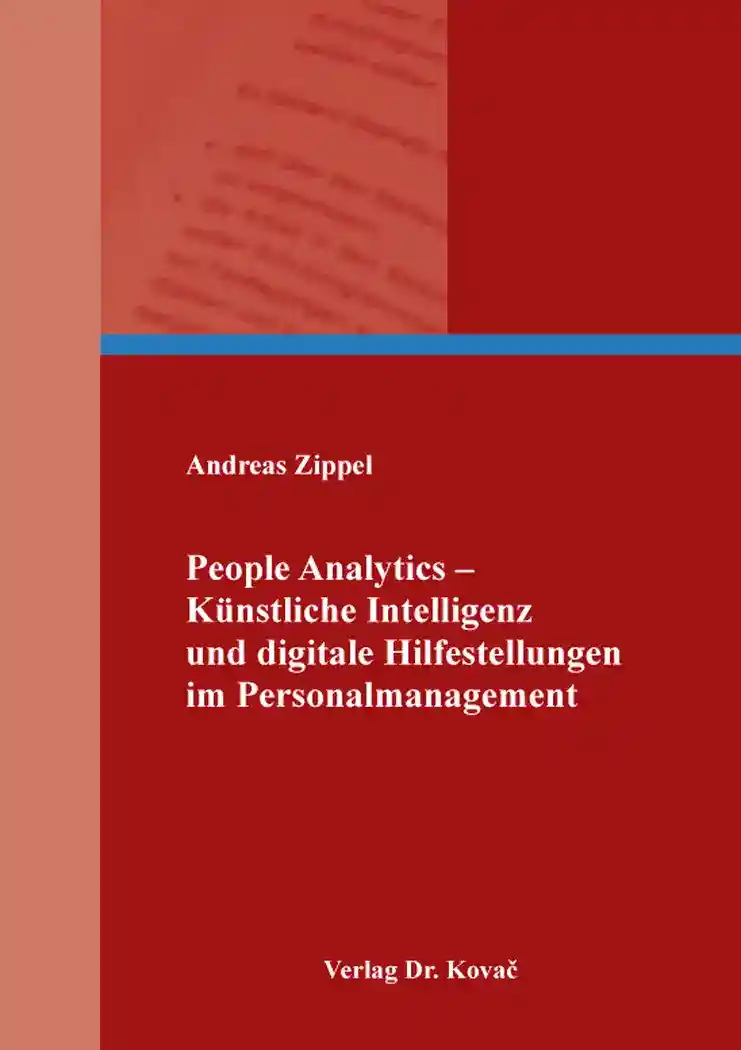Andreas ZippelPeople Analytics – Künstliche Intelligenz und digitale Hilfestellungen im Personalmanagement
Beiträge zu Datenschutz und Informationsfreiheit, volume 35
Hamburg 2023, 440 pages
ISBN 978-3-339-13428-8 (print)
ISBN 978-3-339-13429-5 (eBook)
Rezension
[…] Die Arbeit von Zippel ist eine gediegene dogmatische Arbeit zum Thema, die das verfügbare Material gut aufbereitet. Dies erfolgt dann nochmals am Ende der Arbeit in einer übersichtlichen Zusammenfassung. Es ist aber wegen der diskursiven Darstellung der praktischen Bezüge z.B. für Betriebsräte oder auch Personalverantwortliche schwer geplante oder vorzufindende KI-Angebote gemäß den dogmatischen Vorgaben einzuordnen und zu bewerten. Insofern ist die Arbeit ein nützlicher Beitrag in der gerade heiß laufenden Kl-Diskussion. Mit dem KI-Act der EU und der Diskussion über die praktische Anwendung von Chatbots, die auch im Arbeitsleben eine Rolle spielen (werden), werden weitere Kapitel zu diesem Thema aufgeschlagen.
About this book deutschenglish
Artificial intelligence, machine learning or algorithms – all these technical terms have transitioned into the day-to-day business of many companies. Under the buzzword „people analytics“ companies are trying to improve their HR-decisions by relying on evidence based, digital tool instead of mere gut feeling. This book summarizes the underlying technical principles of people analytics for the technical layperson and transfers them into legal issues surrounding the collection and processing of data. The conclusions are enriched by overviews and examination schemes for practical use.
At first the limitations of processing non-personal data for people analytics purposes are elaborated. The focus of the book lies on the discussion which national or European legal bases can be used to process employee data in the company or in an application process for people analytics purposes. The main objects of the study are the legal bases of § 26 BDSG and Art. 6 DSGVO, in particular the necessity for hiring decisions or for carrying out or terminating the employment contract, consent, the use of collective or work agreements and the change of purpose of employee data.
In addition, other specific limitations of people analytics are elaborated. Thus, the data protection principles from Art. 5 DSGVO are examined for their people analytics-specific requirements, the prohibition of personality and employee profiles from Art. 2 Abs. 1, Art. 1 Abs. 1 GG, the prohibition of discrimination under the AGG and the general principle of equal treatment under labour law and the prohibition of automated individual decisions under Art. 22 DSGVO are discussed as well as the requirements of the operational co-determination under the BetrVG regarding people analytics.
